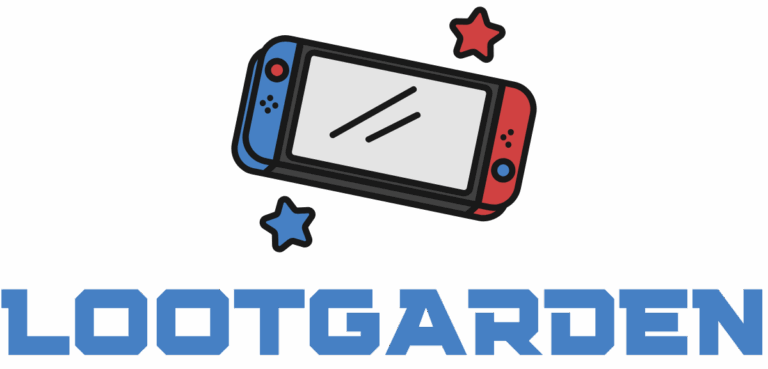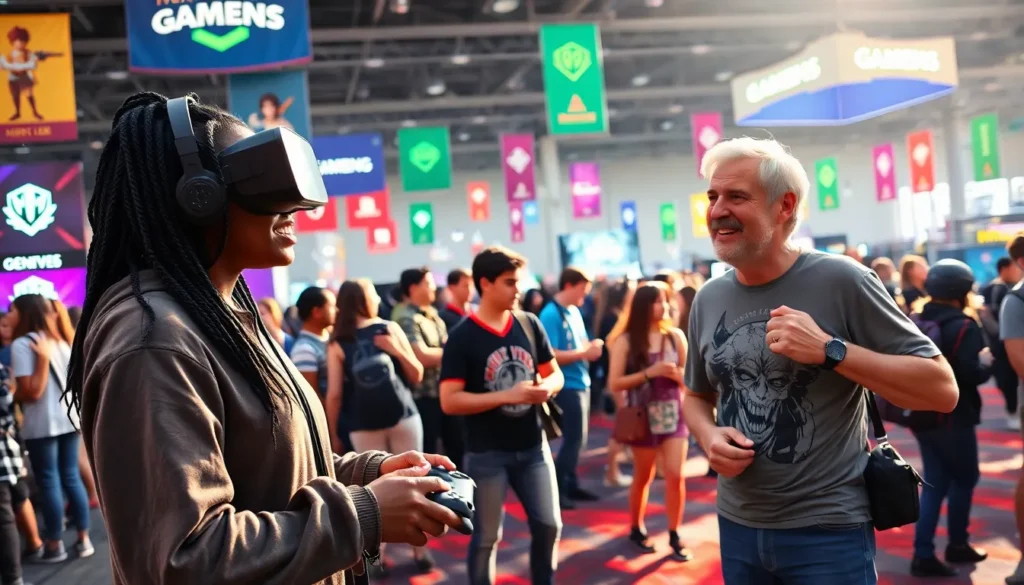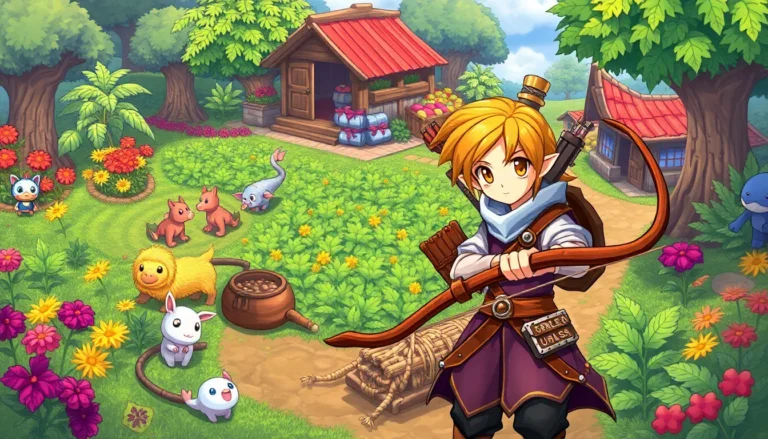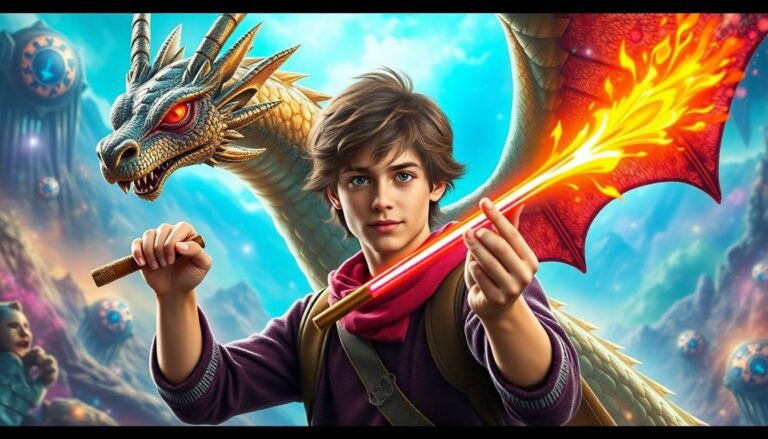In a world where digital landscapes continually evolve, gaming culture stands at the forefront, reflecting both technological advancements and societal shifts. From competitive esports to storytelling masterpieces, the gaming community is diverse and rich with experiences. This article delves into the various facets of gaming culture, exploring its history, community dynamics, and future trends that promise to reshape the way people interact with games.
Table of Contents
ToggleUnderstanding the Gaming Community
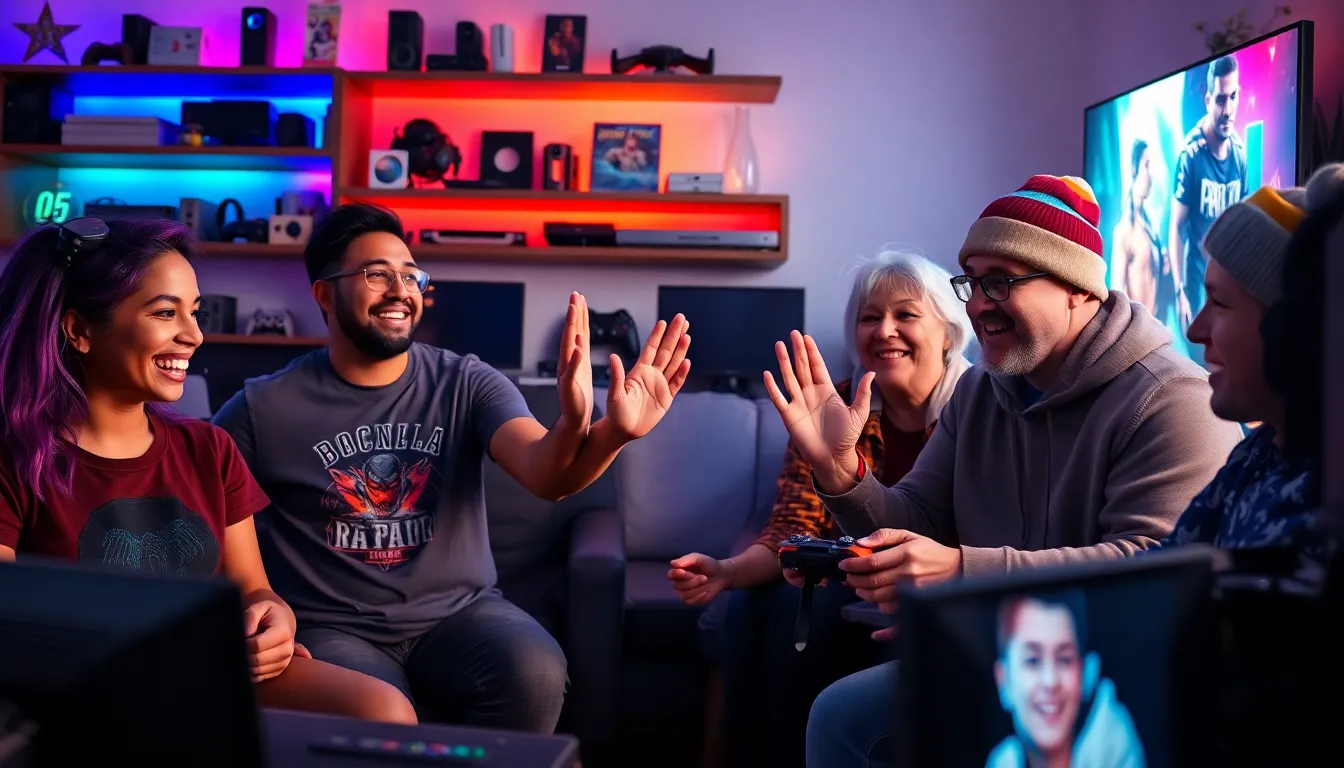
The gaming community is a vibrant tapestry woven from players of all backgrounds and interests. It includes casual gamers, hardcore enthusiasts, and everyone in between. This sense of belonging fosters connections that transcend geographical barriers, allowing players to share experiences, tips, and even build friendships. Online platforms and forums provide spaces for discussions, while social media allows for sharing achievements and gaming moments. A significant aspect of this community is the inclusivity seen in recent years, with movements advocating for diversity and representation.
Also, the rise of LGBTQ+ visibility in gaming, especially within narratives and representation, echoes larger societal changes toward acceptance. Gamers now can find characters and narratives that resonate with their identities, enriching the gaming experience on an emotional level.
The Evolution of Gaming Platforms
Gaming’s history is marked by a constant evolution of platforms, each offering unique experiences. Starting from humble beginnings with consoles like the Atari 2600 and evolving through multiple generations, the landscape has seen the rise of home consoles, handheld devices, and mobile platforms.
In the 1990s, a significant shift occurred with the introduction of the internet, leading to multiplayer gaming. The concept of online play transformed traditional gaming, allowing players to connect globally. In recent years, cloud gaming and virtual reality (VR) have emerged, pushing boundaries further. Services like Google Stadia and Nvidia GeForce Now are changing how games are accessed, emphasizing convenience without losing quality.
The rise of mobile gaming has also been a game-changer, appealing to a broader audience and demonstrating that gaming can be casual and accessible. Platforms such as iOS and Android have ushered in a new era of gaming, where anyone can play a game at any time.
Game Genres and Their Impact on Players
As gaming has evolved, so have game genres, each serving unique tastes and psychological needs. From action and adventure to role-playing games (RPGs) and simulation, each genre offers distinct experiences that impact players differently.
Action games often heighten adrenaline and require quick reflexes, while RPGs immerse players in narratives that promote emotional connections and decision-making. Simulation games can provide a sense of achievement and control, allowing players to construct and manage virtual worlds.
Understanding these genres is vital for both developers and gamers. Developers can craft experiences that resonate deeply with players, while gamers can choose genres that align with their preferences, enhancing their overall gaming satisfaction.
The Role of Streaming and Content Creation
The rise of platforms like Twitch and YouTube has revolutionized how gamers share their experiences and connect with others. Streaming allows gamers to broadcast their gameplay in real-time, creating an interactive experience where viewers can engage, ask questions, or even influence gameplay through donations or chat interactions.
Content creation has opened new avenues for gamers to express themselves creatively. Many streamers and YouTubers cultivate devoted communities, turning hobbies into full-fledged careers. This phenomenon gives rise to opportunities for sponsorship, partnerships, and even esports participation.
Also, streaming has democratized access to gaming culture. Gamers can now discover new titles, gameplay styles, and diverse personalities, enriching their understanding of the gaming community as a whole.
Gaming Events and Conventions: A Celebration of Culture
Gaming events and conventions play a crucial role in bringing the community together, showcasing the latest in gaming, and celebrating the culture that surrounds it. Events such as E3, PAX, and Gamescom serve as epicenters for gamers and developers alike, providing a platform for new game announcements, demo opportunities, and networking.
These conventions foster an atmosphere of excitement and engagement, where fans can meet industry leaders, attend panels, and engage in discussions about future trends. Cosplay events at conventions further enhance the experience, allowing fans to express their love for characters and narratives in creative ways. They often become a form of self-expression, showcasing the talents and creativity within the community.
In recent years, online events have also gained popularity, especially due to global health concerns, ensuring that the sense of community continues, albeit in a virtual space.
Future Trends in Gaming: What to Expect
As technology progresses, the future of gaming seems poised for groundbreaking changes. The rise of artificial intelligence (AI) is one noteworthy trend that holds significant potential for enhancing player experiences. AI can create more nuanced and responsive non-player characters (NPCs), enriching the storytelling aspect of games.
Plus, the integration of augmented reality (AR) is gaining traction, with games like Pokémon GO showcasing its potential to blend real-world interactions with gaming. This trend emphasizes how gaming can enhance day-to-day experiences and foster social interactions.
Besides, the gaming industry’s commitment to mental health awareness is also expected to continue. As discussions around mental health grow in importance across various sectors, the gaming community may see more titles and narratives that address themes of well-being, promoting a more inclusive and supportive environment for players.
Finally, with the growing interest in esports, predictions suggest that competitive gaming will become as mainstream as traditional sports, complete with franchises, leagues, and sponsored events.
Conclusion
The world of gaming culture is vast and dynamic, reflecting societal changes and technological advancements. From the understanding of its community to the evolution of platforms, game genres, and the impact of content creation, each aspect plays a crucial role in defining the gaming experience.
As the industry evolves, so too does its ability to foster connections and promote inclusivity. Embracing future trends will ensure gamers not only enjoy their favorite pastime but also navigate a culture that continues to grow and adapt to changing needs. For anyone interested in the world of gaming, now is an exciting time to engage with this dynamic community.
